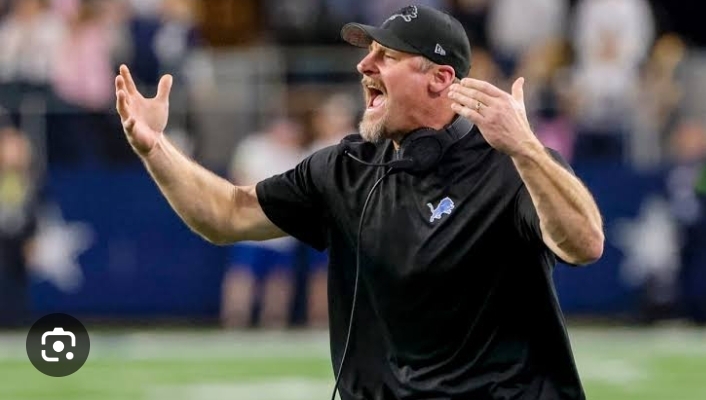hoto by Kevin Sabitus/Getty Images
After the Detroit Lions gained control of the NFC Championship game against the San Francisco 49ers in the first half, it looked like they could be cruising to their first-ever Super Bowl appearance in Las Vegas.
Instead, the game ended in one of the biggest heartbreaks in franchise history. Detroit’s 24-7 halftime lead was erased in just a quarter’s time, and after 27 straight points from the 49ers, the Lions found themselves down 34-24 with only three minutes left—a deficit they would not overcome.
While there were plenty of huge mistakes made on the field—including two Josh Reynolds drops, a Jahmyr Gibbs fumble, and a ridiculous play in which an interceptable ball bounced off Kindle Vildor’s head and into the arms of 49ers receiver Brandon Aiyuk for a 51-yard gain—the most discussed moments of the game surrounded a couple of pivotal coaching decisions from Lions head coach Dan Campbell. Mainly, two fourth-down conversion attempts.
1. Up 24-10 in the third quarter, the Lions went for it on fourth-and-2, passing over an opportunity at a 46-yard field goal and a potential three-score lead
After the failed conversion, the 49ers went 72 yards in five plays to make it 24-17 Lions just two minutes later.
2. Now down 27-24 to the 49ers with 7:38 left in the game, the Lions opted to go for it on fourth-and-3 instead of attempting a potential game-tying 48-yard field.
Jared Goff could not find anyone open on the fourth down play, and his pass fell incomplete. The 49ers proceeded to bleed the next 4:30 off the clock, score a touchdown, and take a 34-24 lead with only 3:08 remaining.
Campbell said after the game that he didn’t regret either decision
“I just felt really good about us converting, getting our momentum, and not letting them play long ball,” Campbell said. “They were bleeding the clock out. That’s what they do, and I wanted to get the upper hand back. It’s easy (in) hindsight, I get it. I get that, but I don’t regret those decisions. It’s hard. It’s hard because it didn’t, we didn’t come through. It wasn’t able to work out, it’s just… I don’t (regret it). I don’t. And I understand the scrutiny I’ll get. That’s part of the gig, man. But it just didn’t work out.”
That sort of aggressiveness has been a defining feature of Campbell’s coaching in Detroit. In fact, most—particularly those in the analytics community—have given Campbell heavy praise for his aggressive mindset. You could certainly make the argument that those kinds of decisions were a big reason Detroit was even on this big of a stage to begin. And, indeed, a couple analytical models agreed with both of Campbell’s decisions:
